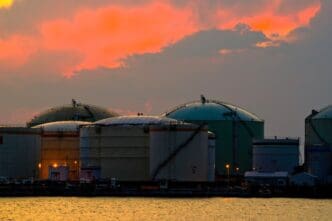Executive Summary
The Story So Far
Why This Matters
Who Thinks What?
Chinese refineries have increased their acquisition of Russian crude oil for October and November delivery, rerouting supplies typically destined for India, as New Delhi’s demand for Moscow’s oil has declined following tariffs imposed by President Trump. This shift highlights an evolving dynamic in global energy markets, spurred by geopolitical pressures and economic incentives.
Shifting Demand Patterns
Analysts indicate that Chinese refineries have secured at least 15 cargoes of Russian oil for delivery in October and November. These purchases, made by China’s state-owned and large private refiners, include approximately 13 cargoes for October and two for November, according to Muyu Xu, a senior crude oil analyst at Kpler, which tracks commodities and shipping data.
The 15 oil cargoes, each typically containing 700,000 to 1 million barrels, are slated to be loaded from Russia’s Arctic and Black Sea ports. These routes are usually utilized for shipments to India, given its closer proximity, rather than China, Xu noted.
Impact of U.S. Tariffs
India’s reduced demand stems from President Trump’s announcement earlier this month of an additional 25% tariff on Indian exports to the United States. This levy is stacked on top of an existing 25% tariff related to India’s imports of Russian oil and gas, leading to a significant reduction in its purchases.
Both China and India emerged as primary buyers of Russian oil after Western nations largely shunned Moscow’s exports following its 2022 invasion of Ukraine. This strategic shift has been crucial for Russia’s oil revenues in the face of international sanctions.
Opportunistic Purchases by China
Xu described China’s increased buying as an “opportunistic” move, noting that Russian oil remains at least $3 per barrel cheaper than Middle Eastern alternatives. She suggested that more Chinese refineries might consider further purchases given the favorable pricing and ongoing pressure on India.
Following a recent meeting with Russian President Vladimir Putin, President Trump told Fox News on Friday that he was not immediately considering retaliatory tariffs on China for its Russian oil purchases. However, he indicated that such measures could be considered “in two weeks or three weeks.”
Import Data and Limitations
Last year, India imported $53 billion worth of petroleum and crude oils from Russia, with Russian supplies accounting for 36% of the Indian market before the recent cuts, according to Vortexa, an energy data firm. China imported $62.6 billion worth of Russian petroleum and crude last year, with Russia providing 13.5% of China’s crude imports, according to UN data.
Despite the increase, Xu believes China is unlikely to fully compensate for India’s reduced purchases. India buys approximately 1.7 million barrels per day from Russia, while China purchases about 1.2 million barrels of seaborne Russian oil daily. Xu warned that if India continues to hold off on buying, it would pose a “real problem for Russia,” as China cannot absorb all of India’s volume.
The shifting dynamics in Russian oil demand, driven by U.S. tariff policy and opportunistic buying by China, underscore the fluid nature of global energy markets amidst geopolitical tensions. While China has stepped in to absorb some of the redirected supply, the long-term implications for Russia’s oil exports remain uncertain without India’s full engagement.








